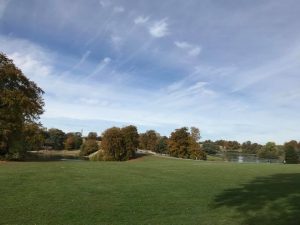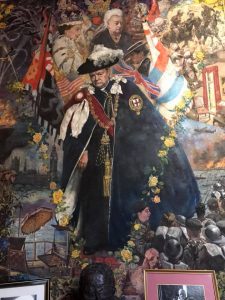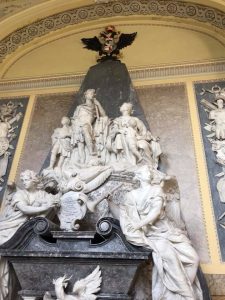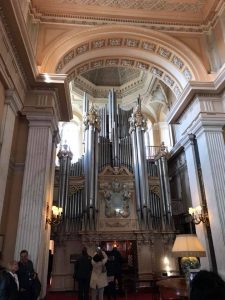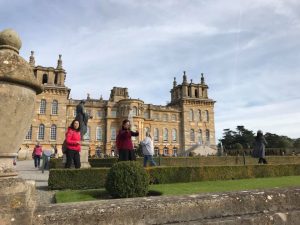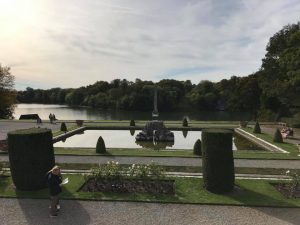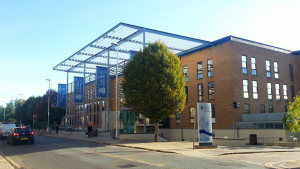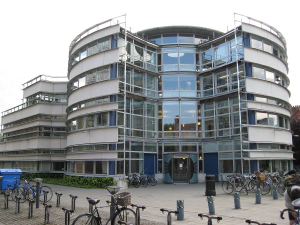Author: Rae Erickson
Location: Namibia
Pronouns: She/Her/Hers
As an avid animal lover, I was in paradise when my urban homestay family brought me to their Satanslogch farm. Even just the journey there was something I had not experienced before, since it was truly up and down through the mountains on just a faintly distinguished gravel road. When we arrived at the camp, which is near Daan Viljoen Dam, and they told me I could hold as many goats as I desired!!! My joy only mounted when I saw that they had over one hundred. I do not support zoos in the US, (or anywhere, for that matter), because I do not believe that animals should be kept in captivity unless they need rehabilitation or additional care in order to survive. The opportunity to be around adorable creatures without contributing to a cause I do not agree with was beautiful, and the baby goats’ expressions were hilarious.

Later in the week, my cohort head to N/a’an ku sê Wildlife Sanctuary as a fieldtrip for our Environment and Sustainability course. We rode through grasslands and saw wild dogs, lions, baboons, and cheetahs. We learned about how the tear markings on many animal’s faces are for hunting purposes, to help them see better at night. Among information about conservation efforts happening at the lodge, they also shared with us that they have been trying to aid the San community in Windhoek, as they are often marginalized. While this is done with good intentions, there is some debate about whether this organization is capitalizing on, or exploiting at all, the San people’s culture.

Amongst these outings, I also found myself repetitively coming back to my creativity journal to work on an art piece that was requested from me by a man named Papa at Katutura’s Arts Center. He was wearing a leopard top hat, and talked at length about how his spirituality is not something he often feels the need to pursue, but is simply something that is inside of him. He elaborated by saying it also comes forth in his music, artistic expression, and everyday life. The biggest takeaway from this meeting and discussion is that you must seek your faith or spirituality in whatever you do, not just reflective activities.
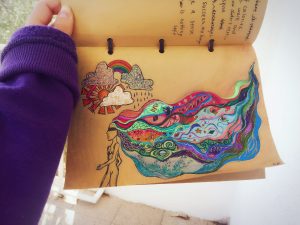
My drawing is titled “The Alien Bloodline” because even though this was a very intriguing conversation, it was also quite overwhelming. He directed most of his attention at me, the only white person present, and when I admitted, ashamed, that I did not know a lot about my mother bloodline, he referred to this confusion or tendency to be unsure about your first roots as an “alien culture”. I struggled to not feel offended and be defensive, (which is easy to do so much of the time as a foreigner in another country), but understood what he meant when emphasizing the importance of knowing where you come from. I agree with his belief that your roots, or DNA, or whatever you want to call your heritage, is something that is ingrained inside of you and contributes largely to who you are. While he meant that you need to know in a literal sense, I think that sometimes, it is okay to know in more intuitive ways, such as through your relationships with your extended and immediate family, and what comes out of your hands when you are thoughtful in your personal creativity.
Art has sustained me in my darkest moments, and for that reason, I have created an account with the sole mission to raise money for art supplies and projects at the orphanage I am doing an internship with. The inaccessibility of art in various communities is heartbreaking to me, so I set up an Instagram account to spread publicity for Hope Village with a GoFundMe account as a space dedicated solely to art donations. If you feel it in your heart to give, please click the following link:
https://www.gofundme.com/n44h69-hope-village&rcid=r01-153751773083-2bfc9654b4cf4537&pc=ot_co_campmgmt_w
If you don’t have the resources to donate right now, please help spread the word by following their the new account hope.village.namibia on IG, finding them on Fb, or sharing the link!!
